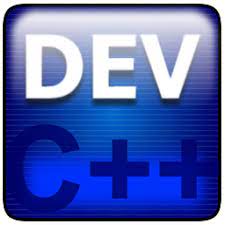Dev-C++, a popular integrated development environment (IDE), has been a go-to choice for many C and C++ programmers since its inception. Known for its simplicity, ease of use, and efficient tools, Dev-C++ provides developers with a lightweight yet powerful environment for writing, compiling, and debugging code in C and C++. In this article, we explore the features and advantages that make Dev-C++ a favored IDE among programmers.
User-Friendly Interface:
One of the standout features of Dev-C++ is its user-friendly interface. The IDE is designed with simplicity in mind, making it accessible to both beginners and experienced developers. The clean layout allows for an intuitive coding experience, with easy navigation between files, projects, and tools.
Fast and Efficient Code Compilation:
Dev-C++ is renowned for its fast and efficient code compilation. The IDE integrates the MinGW (Minimalist GNU for Windows) compiler, providing a quick and reliable compilation process. This is particularly beneficial for developers working on projects of various scales, from small scripts to large applications.
Built-In Code Editor with Syntax Highlighting:
The integrated code editor in Dev-C++ comes with syntax highlighting, making it easier for developers to visually distinguish between different elements of their code. This feature enhances code readability and helps catch syntax errors during the development process.
Debugging Capabilities:
Dev-C++ includes a debugger that allows developers to identify and resolve issues in their code. The debugger supports features like setting breakpoints, stepping through code, inspecting variables, and viewing call stacks. This helps streamline the debugging process, saving developers valuable time.
Extensive Library Support:
Dev-C++ supports a wide range of libraries, including the Standard Template Library (STL) for C++, which provides a collection of useful and generic template classes. This extensive library support enhances the functionality of Dev-C++ and enables developers to leverage existing code for their projects.
Project Management:
Dev-C++ facilitates efficient project management with tools for creating, organizing, and building projects. Developers can easily manage multiple files within a project, making it convenient to work on complex applications with multiple components.
Customizable Compiler and Toolchain Options:
For advanced users, Dev-C++ allows customization of compiler and toolchain options. This flexibility ensures that developers can adapt the IDE to their specific needs, making it suitable for a variety of development scenarios.
Active Community and Regular Updates:
Dev-C++ benefits from an active community of developers and users. Regular updates and contributions from the community help address issues, introduce new features, and ensure that the IDE remains relevant in the dynamic landscape of C and C++ development.
Conclusion:
Dev-C++ stands as a reliable and efficient integrated development environment for C and C++ programming. Its user-friendly interface, fast compilation, debugging capabilities, and extensive library support make it a popular choice among developers seeking a lightweight yet robust IDE. As technology continues to advance, Dev-C++ remains a steadfast tool for programmers looking to write, compile, and debug C and C++ code with ease.
